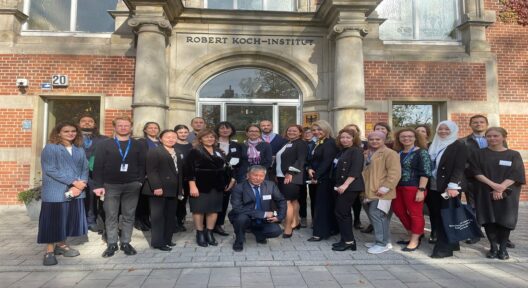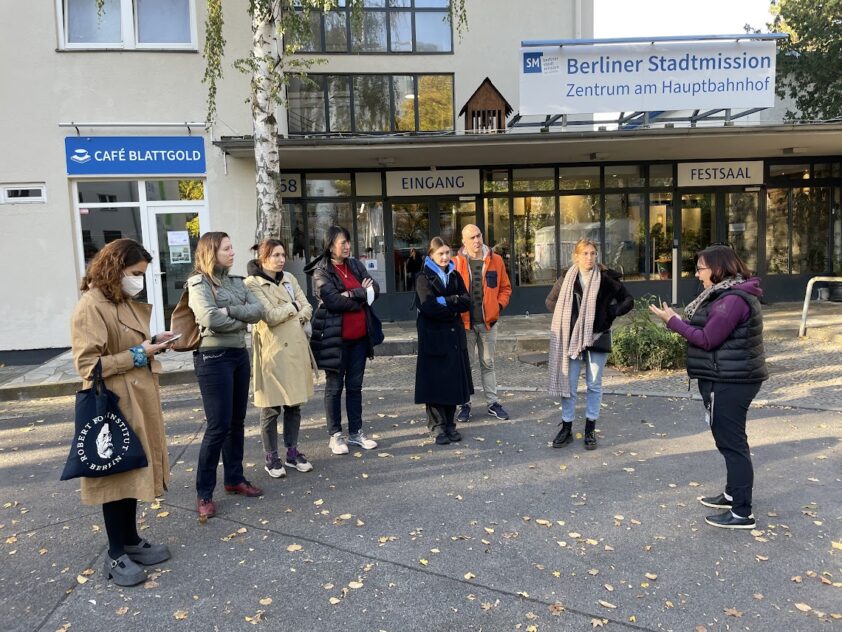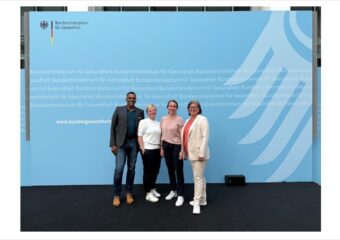COVIMPACT Hepatitis Joint Evaluation Workshop in Berlin
With the participation of project partners from Armenia, Georgia, Kyrgyzstan, Ukraine and Uzbekistan, the WHO Regional Office for Europe and WHO Country Offices, the RKI organized a joint evaluation workshop for the project COVIMPACT Hepatitis in Berlin in October 2022.

From 17 – 21 October 2022, the RKI organised a joint evaluation workshop for the GHPP project COVIMPACT Hepatitis “Assessing the impact of COVID-19 pandemic on viral hepatitis B and C elimination efforts in Eastern Europe and Central Asia”. Project partners from Armenia, Georgia, Kyrgyzstan, Ukraine and Uzbekistan from the WHO Regional Office for Europe and the WHO country offices of the participating countries took part. The workshop took place at the RKI site Nordufer and at the GLS campus in Prenzlauer Berg as hybrid event.
At the beginning of the workshop, the history and functions of the RKI as the German Public Health Institute and the responsibilities of the RKI regarding the surveillance and epidemiology of hepatitis, HIV, and STI were presented to the participants in the lecture hall Nordufer, followed by a guided tour of the RKI Museum. On the GLS campus, the RKI team then gave a presentation of the results of the project so far, followed by presentations by the individual countries on the current status of their respective national hepatitis elimination programmes. In groups, participants then discussed WHO elimination targets for hepatitis B and C and reviewed common challenges and successes in achieving these targets. The participants exchanged lessons learnt across borders, and synergies and differences emerged. Moreover, although the COVID-19 pandemic hindered some of the viral hepatitis response activities, new opportunities and capacities such as better electronic reporting systems were also enabled and created due to the pandemic.

During the workshop, participants also visited several low-threshold services focusing on key populations offering viral hepatitis testing, treatment, and harm reduction. They visited the Berliner Stadtmission, which provides care for homeless people, Fixpunkt Berlin, which offers safe injection rooms for people who inject drugs, and Checkpoint Berlin, a low-threshold testing facility for men who have sex with men. At the end of the workshop, a tour of the Reichstag was on the agenda.
Date: November 2022


